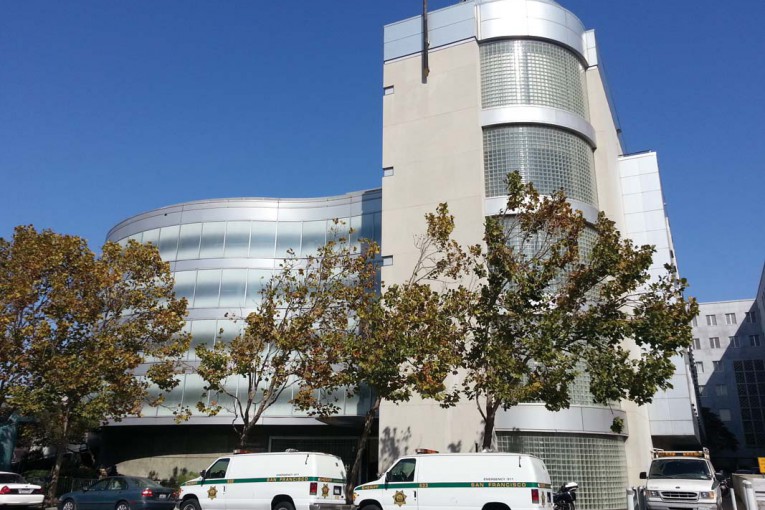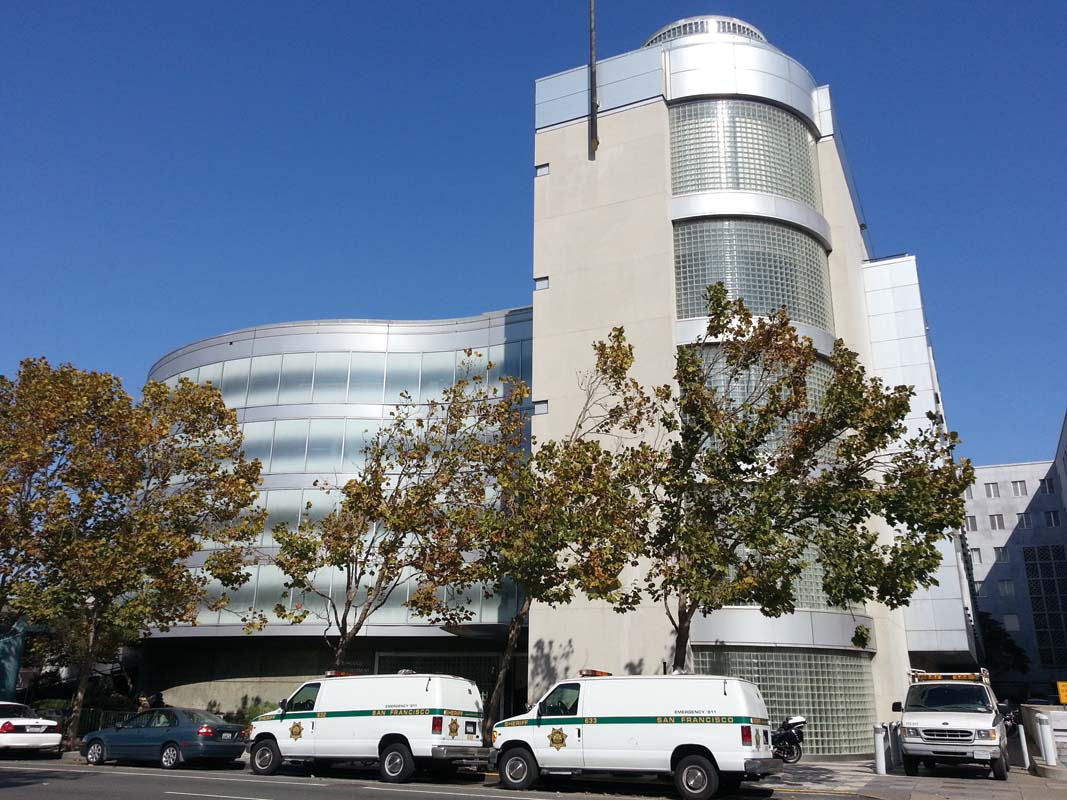
 By Lovepreet Dhinsa
By Lovepreet Dhinsa
SAN FRANCISCO, CA – Charging that “jaywalking” is increasingly targeting people of color in disadvantaged neighborhoods, San Francisco Assemblymember Phil Ting has introduced Assembly Bill 1238, “The Freedom to Walk Act,” to decriminalize jaywalking.
This bill was co-sponsored by the Lawyers’ Committee for Civil Rights of the San Francisco Bay Area (LCCRSF) and the California Bike Coalition.
This bill was drafted in response to the disproportionate amount of tickets and police encounters that are given to low-income people of color for a minor offense.
As seen last year in September, 47-year-old unhoused Kurt Reinhold was killed by the San Clemente Police for jaywalking. Similarly, Chinedu Okobi and Nandi Cain were killed in 2017 in the Bay Area.
A key characteristic these cases have in common is that they were all Black men. Jaywalking allows law enforcement to make use of another opportunity to racially profile and discriminate against Black individuals and communities, charge bill supporters.
According to a compilation of data by the California Racial and Identity Profiling Act (RIPA), in 2018-2020, Black people in California were stopped for jaywalking four-and-a-half times more than their White counterparts.
In another report conducted by LCCRSF, one of the most common citations in Bakersfield was for jaywalking in the downtown area in 2020. The report showed that while only six percent of adults are Black in Bakersfield, approximately 28 percent of the citations given last year were to Black adults.
According to Ting, “whether it’s someone’s life or the hundreds of dollars in fines, the cost is too much for a relatively minor infraction. It’s time to reconsider how we use our law enforcement resources and whether our jaywalking laws really do protect pedestrians.”
A co-sponsor of the bill, Rio Scharf, an Equal Justice Works Fellow from LCCRSF, believes that “jaywalking citations criminalize low-income communities of color and do not advance public safety or deter jaywalking. We can have safe streets without criminal punishment for walking—and we have seen this to be true in wealthy, white neighborhoods where jaywalking occurs but citations are not enforced.”
Another co-sponsor of the bill, Jared Sanchez from the California Bicycle Coalition (CalBike), stated that “jaywalking laws do more than turn an ordinary and logical behavior into a crime; they also create opportunities for police to racially profile.
“A stop for harmless jaywalking can turn into a potentially life-threatening police encounter, especially for Black people, who are disproportionately targeted and suffer the most severe consequences of inequitable law enforcement,” he added.
AB 1238 would legalize walking outside of a crosswalk when deemed safe, cease unnecessary financial burdens on low-income people of color, and prevent law enforcement from using another opportunity to racially profile Black and Brown people, especially in disadvantaged neighborhoods.
Examples of safe crossing laws include in the United Kingdom, and parts of the U.S. such as Virginia and New York. Jaywalking laws were developed by the 1930s.
 Lovepreet Dhinsa is a junior undergraduate student at the University of San Francisco, pursuing her bachelor’s degree in Politics with a minor in Legal Studies. She has a passion for criminal defense law, and strives to go to law school to fight for indigent clients. As such, she is also involved in her university’s mock trial program and student government.
Lovepreet Dhinsa is a junior undergraduate student at the University of San Francisco, pursuing her bachelor’s degree in Politics with a minor in Legal Studies. She has a passion for criminal defense law, and strives to go to law school to fight for indigent clients. As such, she is also involved in her university’s mock trial program and student government.
To sign up for our new newsletter – Everyday Injustice – https://tinyurl.com/yyultcf9
Support our work – to become a sustaining at $5 – $10- $25 per month hit the link:





This seems like a bad idea. When I drive in Oakland and Berkeley at night, there are frequently people wandering in the middle of the street, and I have come close to colliding with pedestrians on several occasions. I suspect mental illness, alcohol and drugs are involved. Not discouraging this behavior seems like a recipe for more people being hit by cars if police are unable to have a tool (law) to check on people who are clearly not in a well state of mind.
Of course, if you start with the premise that all police are out to execute people of color, my above paragraph makes no sense to you.
I agree that without jaywalking laws it will be crazy trying to drive in our larger California cities.
Unfortunately, as we’re seeing in the media and elsewhere these days, there are too many people that paragraph doesn’t make sense to.
In my view you guys are missing the essential point here. Right now, people jaywalk all the time even with the laws and the law is rarely enforced and when it is (as the Bee found two or three years ago) it is done exclusively against people of color. People right now police themselves. When cars are coming, they don’t go. When cars are not coming they do. Sometimes they misjudge. But under the present system it is not concern for being ticketed that drives behavior, but rather concerns about safety. The problem is that enforcement has become not a matter of safety, but a matter of selective enforcement against primarily people of color. Here is the Bee study: https://www.sacbee.com/news/local/crime/article144743834.html
What I was referring to was people walking across the street in the middle of the block with cars coming at night often in dark clothing. Selectively enforced? Everything is. Laws are often there to be used when needed. In the cases I was citing, which is more than common in the east bay, enforcement was highly needed, if not intervention for serious issues (another topic I know).
A more reasonable premise is that black people are disproportionately likely to be cited for jaywalking, and thus removing that possibility from the legal reasons for police encounters reduces the likelihood of adverse interactions. It also removes the seemingly petty but undue financial burdens created by those types of citations.
Nobody should be paying for citations for crossing the street. It can be done safely outside of crosswalks. We need to remove as many of these relatively trivial offenses as possible from the books. Things that result in fines and penalties, things that necessitate going to traffic court to be cleared, failures to appear that result in warrants — all for non-violent, relatively harm-free behaviors that everyone engages in but that people of color are far more likely to be cited for.
I drive in the east bay a lot. I have no problem with people of any color jaywalking. I do it myself. I’m talking about having a law with the ability to enforce so that there is a reason to stop people dangerously wandering into the street.
The author shows no sign of knowing what “jay-walking” is… as far as the statutes…
I think they ought to combine this with the effort to legalize running of stop signs by bicyclists. 🙂
And while we’re at it, throw in that one about not having to register your car, if you can’t afford it.
I remember that song. A combination of country and hip-hop.
True. That in-between time gives them the break they need to shut down freeways. Which also seems to be “increasingly legal”. 🙂
Since statistics show that POC are pulled over more percentage wise maybe we should do away with speeding laws too. People know it’s unsafe to speed so they will police themselves. Nothing to worry about.
How many more laws should we get rid of because POC are charged more frequently?
You’re coming to the “incorrect” conclusion, Keith. The reason is due to systemic racism.
(Just going along with the flow, today.) 🙂
You know things have gone off-the-rails when conservatives and Bill Maher are increasingly in alignment.
Although differential racial enforcement is emphasized by supporters of the bill, that’s not the primary rational. Raise your hand if you never jaywalk when it’s safe to do so.
It’s an unnecessary law that fines people for engaging in logical and safe behavior. The bill would still allow a citation if crossing would be an immediate hazard because of an approaching vehicle.
Do you understand the legal definition of “jay-walking” in the CA codes, Eric? There are very few locations in Davis where one could be legally cited for “jay-walking”… almost none, in fact.
Yes. I know the definition. I also know there are plenty of places even in Davis where it applies. I also know that the bill applies statewide, not just in Davis.
For the whole state of California I wonder how many jaywalking tickets were written. This is simply another example of a bunch of people underneath that dome in Sacramento you have too much time on their hands.
A solution to lack of enforcement to a small law is to increase the number of people who may enforce the law.
For example, since many people already have cellphones, they could just video jay walking and submit those incidents to the public safety department.
Anyone could go to that website and confirm that the behavior is a violation and ID the violators. The people who submitted the footage or IDed the violator are paid with fines collected from the violators. First time violator may be given a warning so they know there is such system.
The same can go for littering, graffiti, skate boarding, riding bicycle on sidewalk etc.
If there aren’t enough people participating, the city could increase the fine and payment. If there are too many people participating, the city could keep taps and pay first the top Contributer when they collect a fine.
You are creative, Edgar – will give you that. 🙂
I suspect that someone will get punched in the nose (and their phones taken-away), for videotaping some else breaking the law.
Of course, they’d also need to ask for the “ID” of the perpetrator. (And I guess one state is doing-away with those. Just kidding.)
My point was that the person who subits the the footage does not need to ID the violator. The violator could be filmed without knowing that they are filmed.
They can be IDed afterwards once the footages are posted. People can link suspects that appear to be the same person, every can see that repeated violator.
If a violator violated dozens of laws, then IDing them would be like a jackpot.
People would do that instead of playing pokemon go.
Sorry – I missed that part, regarding identifying the violator.
But really, I think Keith’s response is the most applicable one. Some folks don’t even want police/surveillance cameras posted around cities. (I’m not one of them, as I think they should be extensively implemented.)
But there’s something unsavory/chilling about encouraging citizens to do this for money. Can’t quite explain the reason I think that. Turning the population into bounty hunters.
About bounty hunting:
Your objection against it is at best irrational. Someone needs to be a violator for the system to kick in. If no one is violating then there is no bounty on anyone.
The common objection about bounty hunting is that only the rich could afford to post a bounty. But this is not the case, the bounty is posted against any violator (as it is already what the law states if enforcement has the capacity to enforce).
What it does is that it brings the law to full power by letting people enforce a law that the community itself has approved and compensated those that enforce the code.
But demonopolizing the system, the system becomes fair because if you let go of your friend for a violation but not reporting, you could just be letting someone else get the bounty instead. Then a bad friend won’t be pressuring his own friends to not turn him in. He would just not commit the violation in the first place, because the footage would just show the group not stopping each other for violations and they all get tagged.
It changes from a culture where friends shield each other for their violations to friends stopping each other from violations.
If you don’t compensate the people doing this, you are falling into the trap of violators guilt tripping good doers for doing good and get compensated, while the bad doer are already compensated from cheating the law.
A society’s willingness to compensate good doer should be bigger than it’s willingness to let violations go unreported.
All the concepta about a good person should do good without asking for a reward is ammo for the violators to reduce enforcement effort.
There is nothing stopping a good doer from donating the bouty they got, the premise is that the system does not shy from recognizing their worth and pays them first.
Edgar…
I have a different ‘take’ on this… a pedestrian, crossing a street, legally or not, without checking to see if it is reasonably safe to do so, is subject to a ‘higher law’… Darwin’s “law”… there are valid reasons why the gene pool needs to be ‘attended to’…
You could argue that jaywalking should not be a violation.
But if the underlying reason is only that it is unfairly enforced, then there are more fair ways to enforce than saying “we have problem enforcing it so let’s not enforce it by making it not a violation.”
Edgar: this is your fifth and thus final comment on this thread.
Non mask wearers could be added to that list. Now there’s a society I want to live in. People going around looking for violations for monetary gain. Orwell had it right.
The difference is that it is decentralized. It is not a single committee deciding what is the truth.
The law comes from people agreeing that there should be a law. Enforcement is de-monopolized.
If you don’t want a particular law, then argue against the law itself, but cost of enforcement, or biased enforcement are not a valid excuse to not have a law. There are ways to pay for and make enforcement fair.
Just a reminder: there is a limitation on comments per article—five comments per article per commenter.
Perhaps that might be a good admonition up front, that pops up in the comment section?
I have no clue as to website design, so I leave to others…
When did they declare jaywalking illegal and why did they declare jaywalking illegal was it before the horse and buggy days or after the horse and buggy days maybe when the car was invented I don’t know but if we’re going to make a law like this why not make wearing a seatbelt legal or maybe motorcycle helmets. Then if they’re going to make jay walking legal it will it be okay if I make a grease spot out of a jaywalker will I be thrown in jail or held financially responsible because he or she was in the roadway.
All this talk about decriminalizing jaywalking decriminalizing hallucinogenic drugs it sounds like the beginning of a zombie apocalypse not saying or is it one already